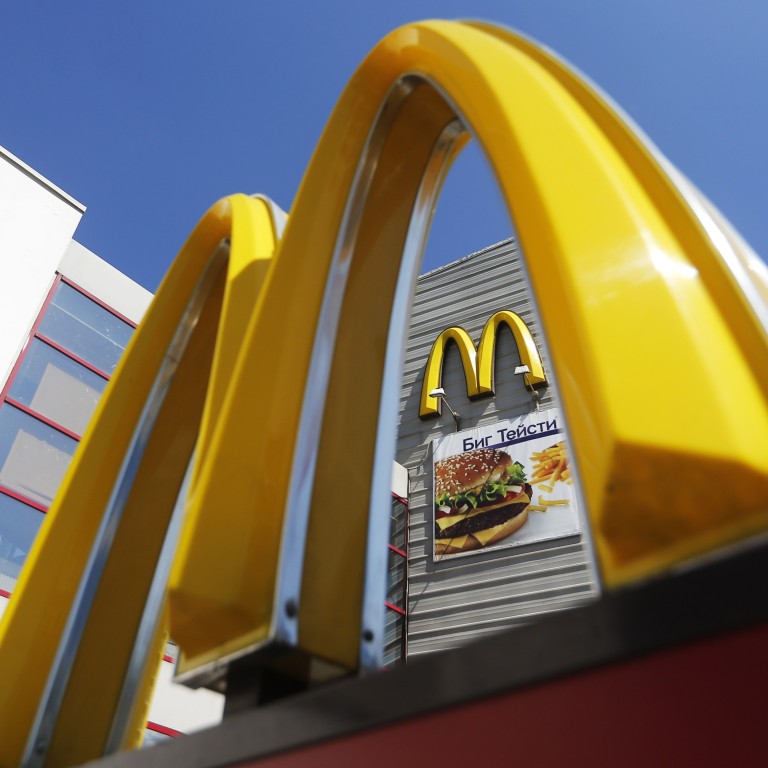
Russia files lawsuit against McDonald's over 'too many calories' and e-coli claims
Russia's consumer protection agency has filed a lawsuit against McDonald's for allegedly selling food that does not meet legal standards.
Russia's consumer protection agency has filed a lawsuit against McDonald's for allegedly selling food that does not meet legal standards.
Moscow said last week that it had no intention of answering Western sanctions by making it harder for Western companies to do business in Russia. But all bets are off, apparently, when you threaten the Russian waistline.
In a statement published on its website, the agency said it had found the calorie content of various McDonald's menu items was far higher than advertised during a study last month of restaurants in the Novgorod region northwest of Moscow. The agency also said it had collected evidence that various McDonald's menu items contained and other dangerous bacteria.
"We have identified violations which put the product quality and safety of the entire McDonald's chain in doubt," Anna Popova, who heads the agency, told Russian news service Interfax.
The report on which the lawsuit is based singles out the Filet-o-Fish sandwich, Royale Burger, chicken burger and cheeseburger for having a calorie content "two to three times" higher than what was specified in the reported nutritional values, and cites various milkshake and ice cream products for reporting only about half their actual protein, fat and carbohydrate content.
The report states that dangerous bacteria were found in the Caesar Roll and Vegetable Salad.
In total, the agency found the McDonald's restaurants they reviewed had committed 11 violations of Russian administrative law, carrying a fine of 70,000 roubles (HK$15,445).
But the federal agency decided to file the lawsuit "in the interest of consumers", Popova said, "so as to ban production and sale of substandard products". Court proceedings begin next month.
Popova added that her agency might carry out checks of McDonald's restaurants in Moscow and elsewhere to see if the same violations cropped up.
In a statement posted on the company's Russian website, McDonald's said it had not been approached by the authorities, and that it had "not received notice of any claim" against the company.
The statement said nutritional values were calculated based on the methodology approved by the Food Institute of Russia.
